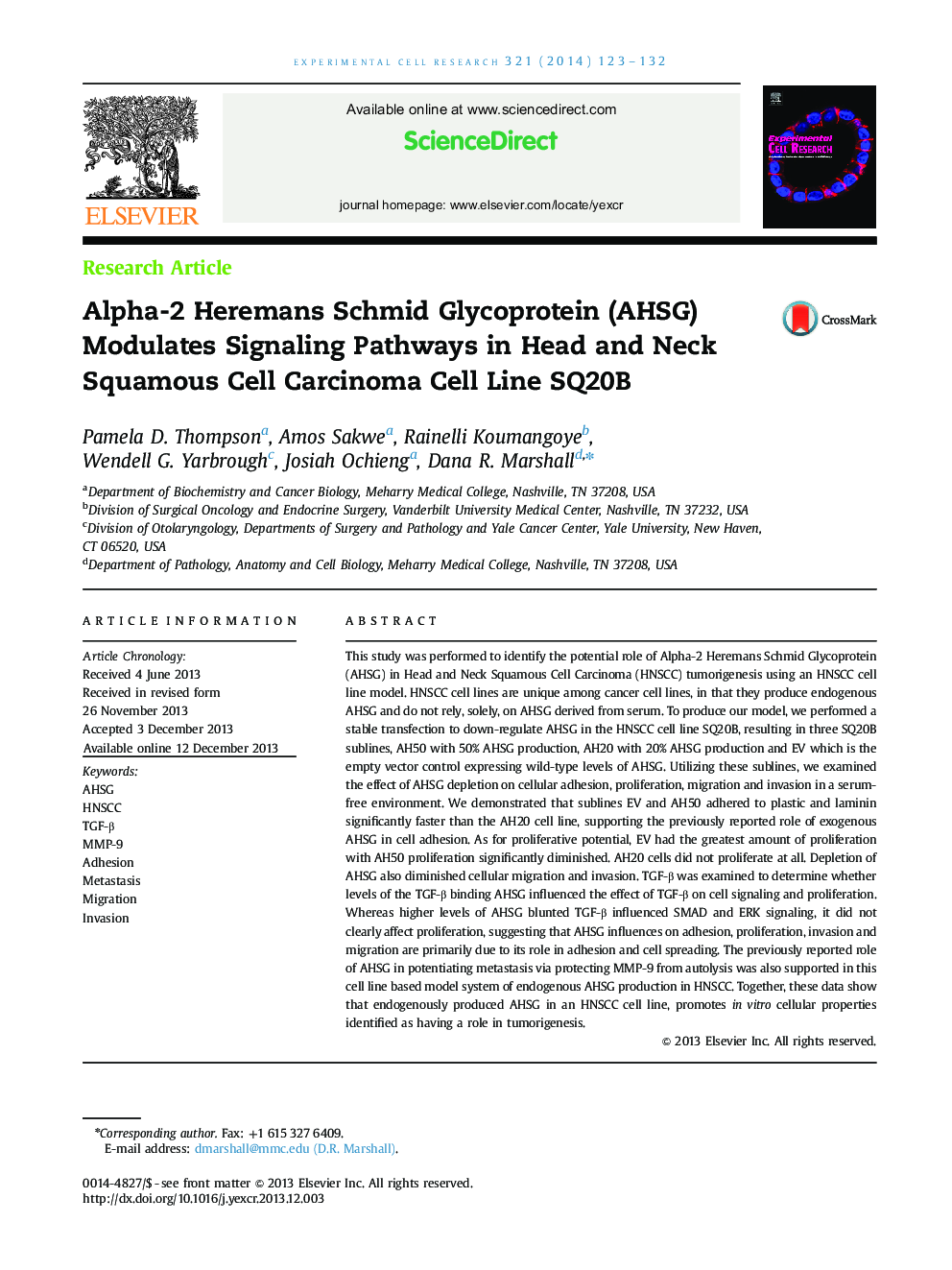| کد مقاله | کد نشریه | سال انتشار | مقاله انگلیسی | نسخه تمام متن |
|---|---|---|---|---|
| 2130358 | 1086557 | 2014 | 10 صفحه PDF | دانلود رایگان |

• Head and neck squamous cell carcinoma cell lines synthesize and secret AHSG.
• AHSG depleted cell lines are significantly inhibited in their ability to proliferate, adhere, migrate, invade and protect MMP-9.
• Human AHSG and bovine fetuin-A are functionally equivalent in regards to growth promotion of cancer cell lines.
This study was performed to identify the potential role of Alpha-2 Heremans Schmid Glycoprotein (AHSG) in Head and Neck Squamous Cell Carcinoma (HNSCC) tumorigenesis using an HNSCC cell line model. HNSCC cell lines are unique among cancer cell lines, in that they produce endogenous AHSG and do not rely, solely, on AHSG derived from serum. To produce our model, we performed a stable transfection to down-regulate AHSG in the HNSCC cell line SQ20B, resulting in three SQ20B sublines, AH50 with 50% AHSG production, AH20 with 20% AHSG production and EV which is the empty vector control expressing wild-type levels of AHSG. Utilizing these sublines, we examined the effect of AHSG depletion on cellular adhesion, proliferation, migration and invasion in a serum-free environment. We demonstrated that sublines EV and AH50 adhered to plastic and laminin significantly faster than the AH20 cell line, supporting the previously reported role of exogenous AHSG in cell adhesion. As for proliferative potential, EV had the greatest amount of proliferation with AH50 proliferation significantly diminished. AH20 cells did not proliferate at all. Depletion of AHSG also diminished cellular migration and invasion. TGF-β was examined to determine whether levels of the TGF-β binding AHSG influenced the effect of TGF-β on cell signaling and proliferation. Whereas higher levels of AHSG blunted TGF-β influenced SMAD and ERK signaling, it did not clearly affect proliferation, suggesting that AHSG influences on adhesion, proliferation, invasion and migration are primarily due to its role in adhesion and cell spreading. The previously reported role of AHSG in potentiating metastasis via protecting MMP-9 from autolysis was also supported in this cell line based model system of endogenous AHSG production in HNSCC. Together, these data show that endogenously produced AHSG in an HNSCC cell line, promotes in vitro cellular properties identified as having a role in tumorigenesis.
Graphical AbstractFigure optionsDownload high-quality image (87 K)Download as PowerPoint slide
Journal: Experimental Cell Research - Volume 321, Issue 2, 15 February 2014, Pages 123–132